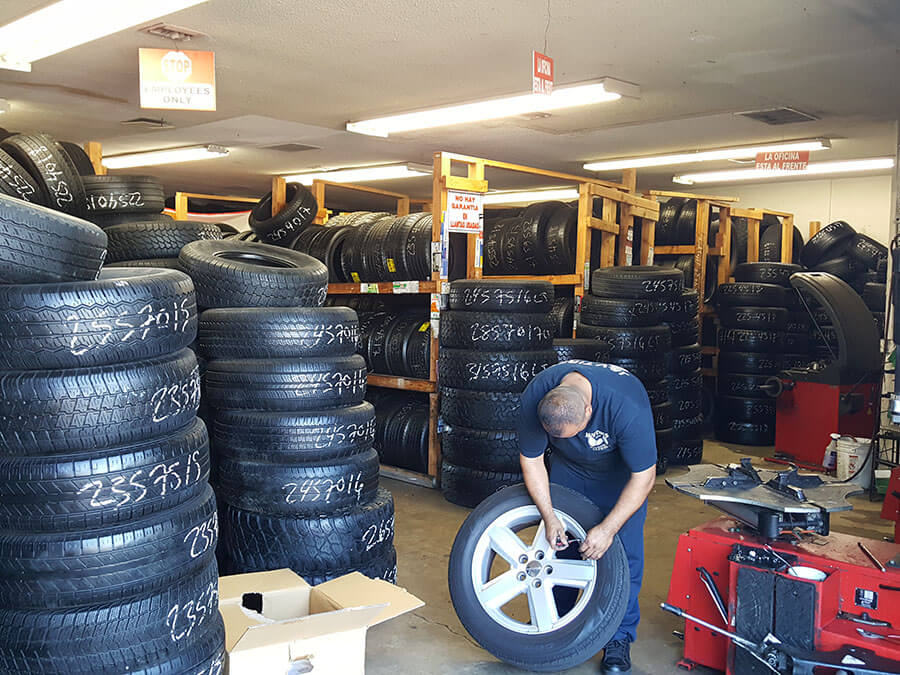Premium Tires Morris IL: High Quality Products for All Makes and Models
Premium Tires Morris IL: High Quality Products for All Makes and Models
Blog Article
Tire Service: The Impact of Weather
When it pertains to making certain ideal performance and security when traveling, recognizing the influence of climate condition on tire service is crucial. From scorching warmth to icy roads, each weather condition element can significantly influence tire performance and general driving experience. By delving into the impacts of varying climate condition on tires, vehicle drivers can obtain beneficial understandings that may enhance their car's efficiency and durability. In this conversation, we will explore the elaborate partnership in between climate condition and tire solution, clarifying the importance of weather-specific tire upkeep techniques and factors to consider.
Heat and Tire Performance
When revealed to heats, tires experience modifications in performance that can significantly affect vehicle safety and security and handling. The heat produced from prolonged driving or heat conditions causes the tire rubber to soften, bring about minimized walk life and raised wear. As the rubber becomes softer, the tire's grip when traveling decreases, affecting braking ranges and overall traction. In severe cases, excessive warmth can also trigger tire blowouts, positioning a severe safety and security threat to the car and its residents.
Additionally, high temperatures can accelerate the process of tire aging, creating the rubber to deteriorate much more swiftly. To minimize the effects of heat on tire performance, motorists need to routinely inspect their tire stress, revolve tires to ensure even wear, and examine for any type of indicators of damages.
Cold Climate Effects
Cold weather condition conditions can have a considerable impact on tire performance and safety and security. In cool weather condition, tires may also shed air stress much more rapidly, which can affect taking care of and gas effectiveness.
To reduce the effects of winter on tires, it is vital to consistently inspect tire pressure and inflate them to the supplier's advised levels. Using winter months or all-season tires created for chilly weather problems can likewise boost grip and grip on icy or snowy roadways - tire shop morris. Appropriate tire maintenance, consisting of regular examinations for wear and damage, comes to be even more essential during cooler months to guarantee optimum performance and safety and security
Rainy Conditions Influence
Tires with worn-out treads are much more prone to hydroplaning, where a layer of water constructs up in between the tire and the road surface area, leading to loss of traction. To combat Continue this, vehicle drivers ought to frequently inspect their tires for ample walk depth and take into consideration investing in tires especially created for wet problems.

Snow and Tire Safety
Snow-covered roads pose special difficulties for motorists, highlighting the significance of proper tire choice and maintenance. When driving in snowy conditions, having the navigate to this website right tires can make a considerable distinction in security and efficiency. Winter tires are created with unique rubber compounds and walk patterns to give better grip on snow and ice contrasted to all-season tires. The deeper treads and sipes of wintertime tires aid grip the road much better, lowering the risk of slipping and sliding.
Along with using winter season tires, it is critical to guarantee they are properly inflated. Winter can trigger tire pressure to drop, impacting traction and handling (tires morris il). Regularly checking and maintaining the correct tire pressure is essential for optimal efficiency in snowy problems

Weather-Related Tire Maintenance
Weather-related tire upkeep includes a variety of practices intended at making sure ideal why not find out more tire function and long life in various weather scenarios. One vital element of weather-related tire maintenance is tire stress guideline. Checking tire tread regularly and changing tires when tread wear gets to a specific depth is essential for preserving traction and stability in negative climate.
Conclusion
In final thought, climate conditions have a substantial effect on tire efficiency and security. From warmth impacting tire pressure and use to cold climate decreasing grip, it is important to consider the climate when maintaining and making use of tires. Rainy problems can decrease hold and lead to hydroplaning, while snow can boost the risk of mishaps if tires are not effectively geared up. Weather-related tire upkeep is essential in making certain optimal efficiency and safety and security when driving.
In this conversation, we will certainly discover the intricate connection between climate problems and tire solution, losing light on the importance of weather-specific tire maintenance methods and factors to consider.

Report this page